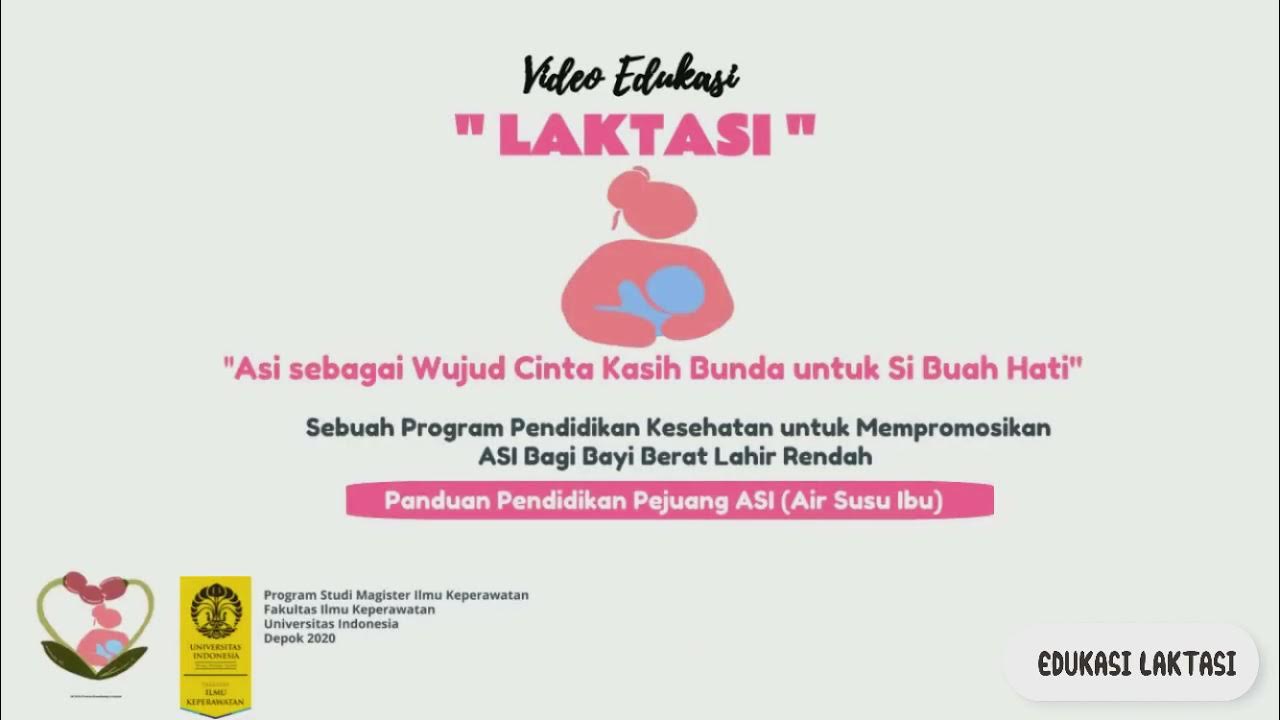Feeding of Healthy Newborn part1
Summary
TLDRThis video discusses the importance of exclusive breastfeeding for newborns, emphasizing its nutritional benefits and the role it plays in preventing infections and promoting healthy growth. It highlights the significance of maternal nutrition during the first few months and the first two years of a child’s life. Additionally, it covers strategies for optimizing breastfeeding, including proper positioning and lactation support. The video also touches on the need for regular interventions and educates viewers on how to solve common breastfeeding challenges, promoting both immediate and long-term health benefits for both mother and child.
Takeaways
- 😀 Breastfeeding is crucial for the first two years of a child's life to ensure optimal growth and health.
- 😀 Exclusive breastfeeding for the first six months helps prevent infections and improves overall development.
- 😀 Proper nutrition in the first few months is essential for newborns, with a focus on breast milk and water as the best options.
- 😀 Breast milk is proven to reduce the risk of respiratory diseases and other infections in babies.
- 😀 Introducing supplementary foods after six months of exclusive breastfeeding can decrease infections and improve long-term health outcomes.
- 😀 Regular and frequent breastfeeding (3-4 times a day) is necessary to ensure good health and development.
- 😀 The first six months of life are critical for a newborn's growth, and breast milk should be the primary source of nutrition.
- 😀 The use of proper positioning and latching techniques during breastfeeding can improve milk production and help avoid difficulties.
- 😀 Vitamin and mineral supplements should be considered only after consulting a healthcare professional, as breast milk can provide the essential nutrients in the first few months.
- 😀 Early interventions like frequent breastfeeding and proper nutrition can significantly reduce the risk of childhood obesity and other long-term health issues.
Q & A
Why is exclusive breastfeeding recommended for newborns?
-Exclusive breastfeeding is recommended for newborns because it provides essential nutrients for growth, boosts the immune system, and helps reduce the risk of infections and other health issues.
How long should a baby be exclusively breastfed?
-A baby should be exclusively breastfed for the first six months of life to ensure they receive the optimal nutrition needed for their development.
What are the long-term benefits of breastfeeding for both mother and baby?
-Breastfeeding offers long-term benefits such as reduced risks of infections, allergies, obesity, and chronic diseases for both the mother and the baby. It also helps in fostering emotional bonding between the two.
What role does breastfeeding positioning play in the process?
-Proper breastfeeding positioning is crucial to ensure effective milk transfer, prevent discomfort or pain for the mother, and ensure the baby is able to latch correctly, which helps stimulate milk production.
What are the key nutrients that breast milk provides to a newborn?
-Breast milk provides key nutrients such as proteins, fats, carbohydrates, vitamins, and minerals, all of which are essential for the baby's growth, brain development, and immune system.
What challenges might mothers face during breastfeeding, and how can these be resolved?
-Common challenges include latching issues, nipple pain, and low milk supply. These challenges can be resolved with proper guidance, the right breastfeeding techniques, and, when necessary, seeking help from lactation consultants.
At what age should supplementary foods be introduced alongside breastfeeding?
-Supplementary foods should be introduced to a baby after six months of age, while continuing breastfeeding to ensure balanced nutrition and growth.
How does breastfeeding contribute to the emotional well-being of both the mother and the baby?
-Breastfeeding fosters emotional bonding between the mother and baby, which is important for the baby's emotional development and the mother's sense of nurturing and connection.
What are the benefits of breastfeeding beyond the first year of life?
-Breastfeeding beyond the first year continues to provide nutritional benefits, immune protection, and contributes to the baby's emotional and developmental health. It can also help with managing infections and reducing the likelihood of allergies.
What are the potential risks of not breastfeeding or stopping early?
-Not breastfeeding or stopping early increases the risks of infections, allergies, and developmental delays for the baby. It may also lead to challenges in maternal-infant bonding and increased health risks for the mother.
Outlines

Этот раздел доступен только подписчикам платных тарифов. Пожалуйста, перейдите на платный тариф для доступа.
Перейти на платный тарифMindmap

Этот раздел доступен только подписчикам платных тарифов. Пожалуйста, перейдите на платный тариф для доступа.
Перейти на платный тарифKeywords

Этот раздел доступен только подписчикам платных тарифов. Пожалуйста, перейдите на платный тариф для доступа.
Перейти на платный тарифHighlights

Этот раздел доступен только подписчикам платных тарифов. Пожалуйста, перейдите на платный тариф для доступа.
Перейти на платный тарифTranscripts

Этот раздел доступен только подписчикам платных тарифов. Пожалуйста, перейдите на платный тариф для доступа.
Перейти на платный тариф5.0 / 5 (0 votes)






